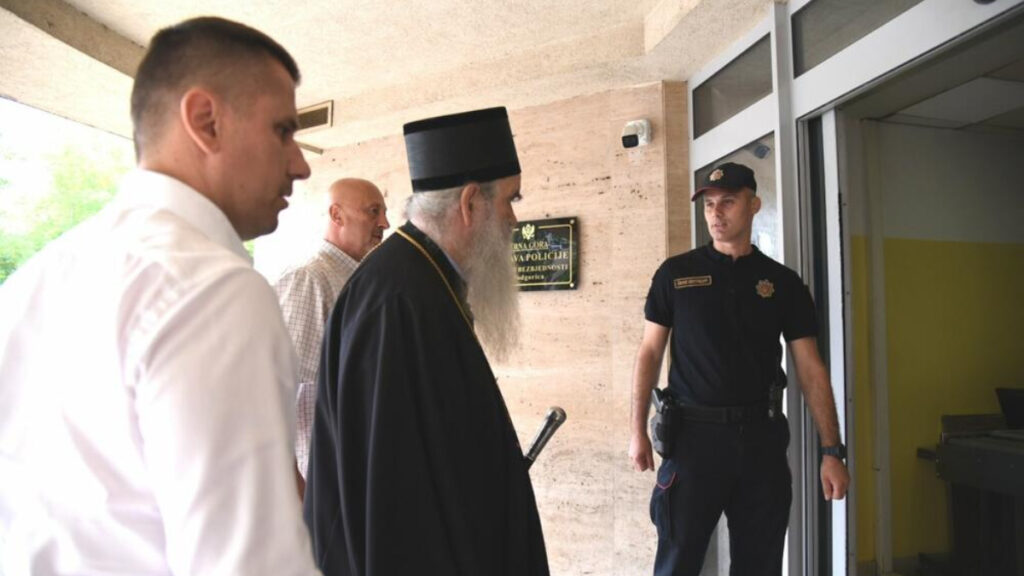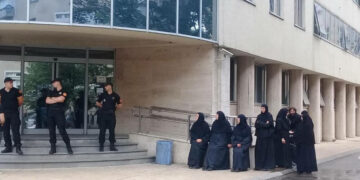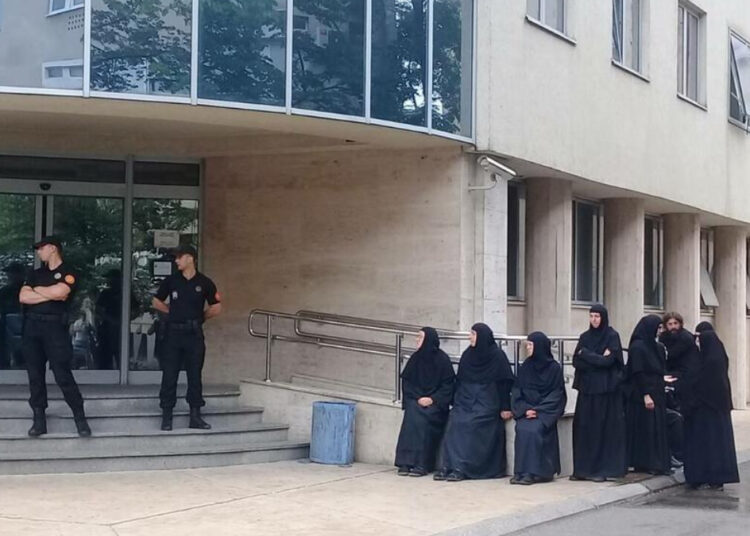Last updated on November 2nd, 2020 at 03:28 pm
Montenegro still has not revoked the shameful Law on the Freedom of Religion or Belief and the Legal Status of Religious Communities, which legitimizes the seizure and confiscation of the property of four dioceses of the Serbian Orthodox Church (SOC) in Montenegro. The coronavirus epidemic temporarily disrupted the magnificent processions that were held for almost three months under the slogan We won’t give up our shrines, until the day when the faithful gathered to commemorate the patron saint of their town and of all the Orthodoxy, Saint Basil of Ostrog.
Although the ties between the Montenegrin regime and international crime and corruption are a well-known fact, the authorities do not shy away from inciting conflict and provoking the Orthodox people of Montenegro. It is evident that the Montenegrin regime has no intention of accepting the fact that its people do not want to give up on their faith, their shrines, their priests, and their Church.

The SOC’s most respectable high priest — 83-year-old Metropolitan Amfilohije of Montenegro and the Littoral — was grilled by the Montenegrin State Prosecutor’s Office for six whole hours, after which the Prosecutor filed charges against him, as had been done previously against Bishop Joanikije. The anticivilization, oppressive authorities in Podgorica also served deportation notices to Father Nikolai, Hegumen [Abbot] of the Zlateš monastery, and to Saša Janjić, a priest from Pljevlja. By all accounts, ten more priests will be served deportation notices by the Montenegrin Border Police in coming days days, regardless of the fact that some of them have served as priests in the territory of Montenegro for more than 20 years.
The international community must take urgent action and endorse the will of the people expressed in the slogan “We won’t give up our shrines.” The endorsement should imply exerting pressure on Montenegrin authorities to start implementing their own Constitution and the European Convention on Human Rights, specifically the latter’s protection of the freedom of thought, conscience and religion (Article 9), implemented by the European Court for Human Rights (Judgment[1] in Metropolitan Church of Bessarabia and Others, December 2001); as well as the UN’s Universal Declaration on Human Rights, which guarantees that everyone has the right to the freedom of thought, conscience and religion (Article 18), and the freedom of assembly, opinion and expression (Article 19).
iFamNews
gives its full support to the righteous struggle of the clergy and the faithful
people of Montenegro for their freedom of religion.
[1] The Court took the view that the Moldovan Government’s refusal to recognize the applicant church had constituted an interference with the right of that church and the other applicants to freedom of religion, as guaranteed by Article 9 § 1 of the Convention. Finding in particular that in taking the view that the applicant church was not a new denomination, its recognition depending on the will of a recognized ecclesiastical authority, the Metropolitan Church of Moldova, the Government had failed to discharge their duty of neutrality and impartiality, the Court concluded that the refusal to recognize the applicant church had such consequences for the applicants’ freedom of religion that it could not be regarded as proportionate to the legitimate aim pursued. It had not therefore been necessary in a democratic society and there had been a violation of Article 9 the Convention. Also see: Overview of the Court’s case-law on freedom of religion.




















Discussion about this post